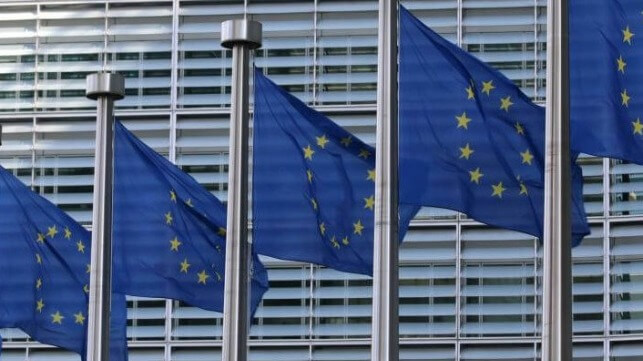Industry Urges EU to Adopt Life-Cycle Approach for Green Fuels in ETS

The shipping industry is seeking to influence the final decision of the European Union’s lawmakers on the form of the EU Emission Trading System arguing that to drive investments in green fuels they must take a full life-cycle approach. As the EU prepares to finalize the regulations due to take effect in 2023, a group of influential shipping associations argues that the focus on combustion and emissions keeps fossil fuels in production instead of encouraging green fuels and the increased production that will be required to meet the decarbonization goals.
“Political commitment will be required to unlock the huge investments needed to succeed,” the groups write in a new open letter to the members of the European Parliament as well as member state negotiators. “When creating regulations, politicians should consider the full picture to accurately capture the impact of the new fuels on the climate. Assessing fuels on a life-cycle basis includes the impact on the climate from producing, transporting and combusting the fuels.”
The signatories to the letter and this call for action include Danish Shipping, the Methanol Institute, the Renewable Hydrogen Coalition, the Royal Association of Netherlands Shipowners, the Swedish Shipowners’ Association, and the World Shipping Council.
“To support shipping’s transition to renewably produced marine fuels, the EU ETS must provide the right signal, taking into consideration the GHG emissions of fuels across their full life-cycle. We are concerned that the current ETS language for maritime unintentionally favors so-called brown fuels from fossil production that increase GHGs,” says Jim Corbett, the World Shipping Council’s Environmental Director for Europe.
The groups point out in their letter that the fuels of the future can be produced in more than one way. One example they cite is methanol, which can be produced sustainably or from fossil energy. While both production pathways lead to the same product, the impact on the climate differs wildly.
They argue that while the EU ETS is basically designed to penalize emissions, it is not adapted to reward zero emissions in the fuel production line. They highlight that the current proposal to include shipping only puts a price on the greenhouse gas emissions from combustion. The existing proposal that only considers direct emissions they write could encourage the use of fuels that have significant emissions during production but no emissions when used onboard.
“We find it crucial that the ETS regulation genuinely drives reductions and uptake of new green fuels. To this end, the fuels need to be assessed on a life-cycle basis, or so-called Well-to-Wake perspective which considers the full climate impact from extraction to refining and finally combustion in the ships’ engine,” said Maria Skipper Schwenn, Director of Climate, Environment and Security at Danish Shipping.
Long-term investments are needed to produce the renewable fuels of the future in greater quantities.
The groups argue in their letter that the lack of a life-cycle approach in the ETS defers investment in the production of green fuels because developers await certainty on the implications for their choice of fuel.
To get the necessary investments started today, the letter concludes that politicians need to provide certainty on the requirements for the fuels of tomorrow by agreeing on a life-cycle approach in the EU ETS.
